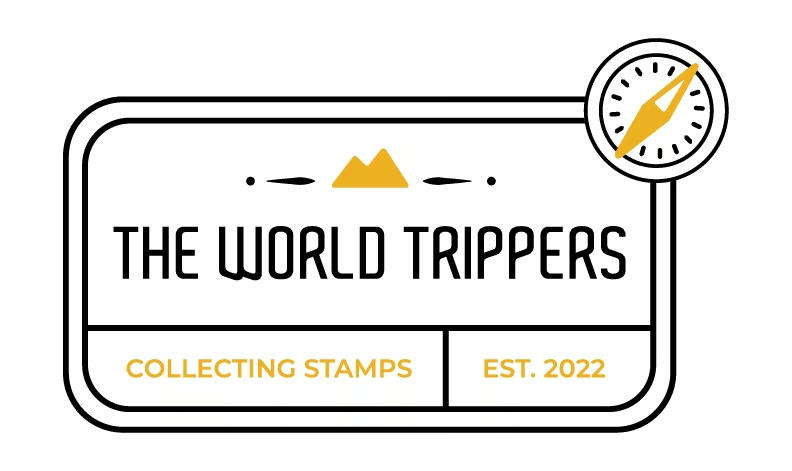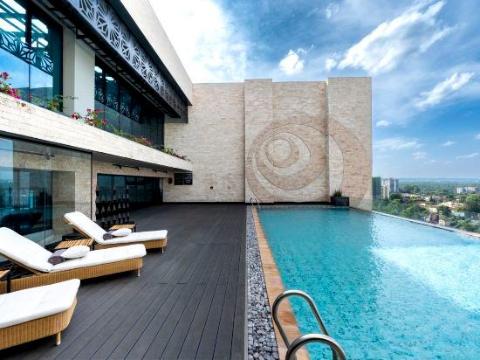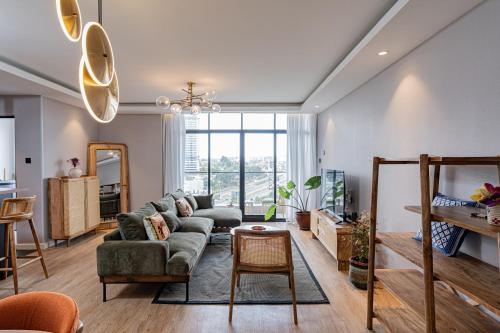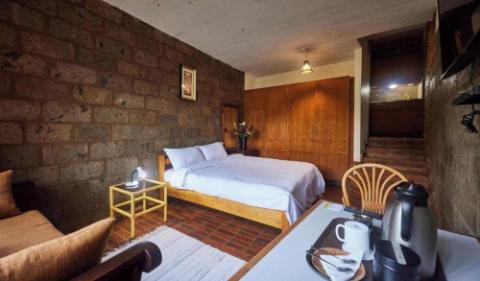Nairobi, the capital of Kenya, can be an intense destination when you are first introduced to a large African city. Yet Nairobi doesn’t have to be all chaos, filth and insecurity; it also has beautiful places and special experiences to offer. Below we tell you the things to do in Nairobi with our 8 best activities.
Content of this blog:
- Is Nairobi safe?
- 1. Stroll through Africa’s largest slum with a guide: Kibera Slum tour in Nairobi
- 2. Walk with former street children through Nairobi center
- 3. On safari in Nairobi National Park
- 4. Scoring souvenirs at the Maasai market in Nairobi
- 5. Walking through the Hon. John Michuki memorial park
- 6. Eat at Nairobi’s most extraordinary restaurant: Carnivore
- 7. Nairobi national museum
- 8. Learn more about giraffes at the Giraffe Centre in Nairobi
- Safe neighborhoods to stay in Nairobi
Is Nairobi safe?
For tourists, Nairobi is relatively safe. But it is natural to be concerned about safety in the Kenyan capital. Nairobi is known as Nairobbery for a reason, a reference to the amount of pickpockets in Kenya’s capital. Therefore, it is certainly vital to watch your belongings carefully.
We wrote down quite a few tips in the article on safety in Kenya to make you aware of the risks in Kenya and feel safer during your trip. Don’t let this discourage you because we didn’t actually feel really unsafe for a second during 3 full days in Nairobi, but it never hurts to pay attention.
1. Stroll through Africa’s largest slum with a guide: Kibera Slum tour in Nairobi
Nairobi is home to the largest slum in Africa, called the Kibera Slum. It cannot be determined exactly how many people live here. Estimates vary between 700 thousand and 1.5 million people.
With this tour you will go into the Kibera slum with a guide. The guide talks about the living conditions, the people who live here and the unequal opportunities in education and employment. It is incredibly interesting and confronting to hear the guide tell about this.
You visit a local house (slum) in Kibera, where a family (2 parents with 5 children) lives on about 15 square meters. So this is the living room, kitchen and “bedrooms” for 7 people, all in one mini-house. The toilets are communal and, needless to say, the hygiene is terrible. The guide talks about the projects that have been started to make Kibera a safer and better place to live.
When you walk during the day in Kibera, Nairobi, it does not feel unsafe. Children smile sweetly at you, want to hold your hand, and most adults are also very friendly. Everyone seems to like you visiting the neighborhood.
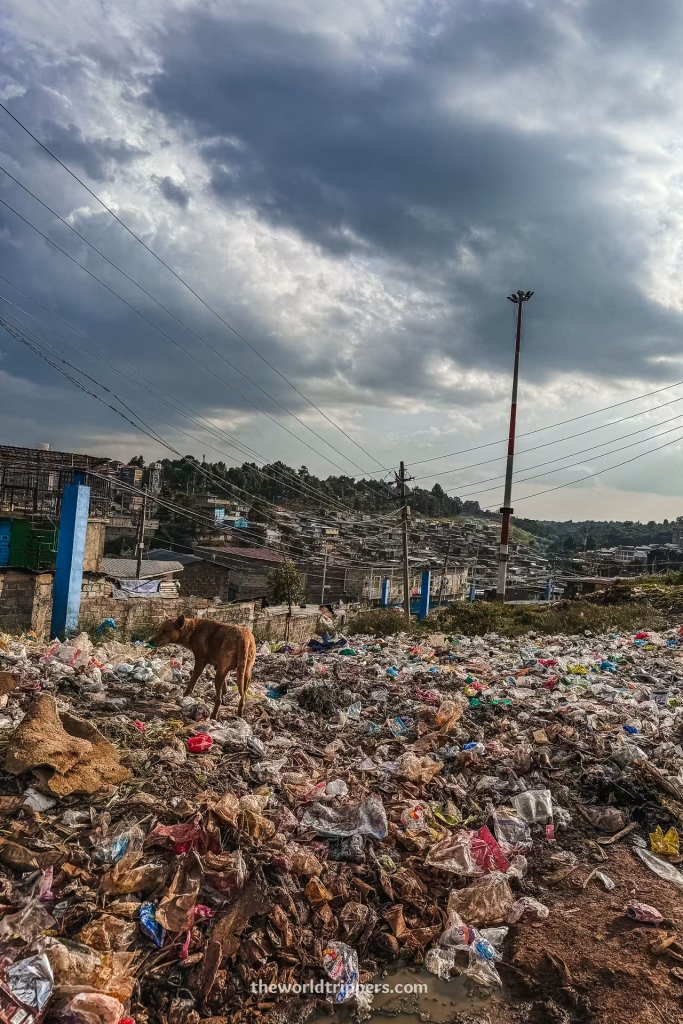
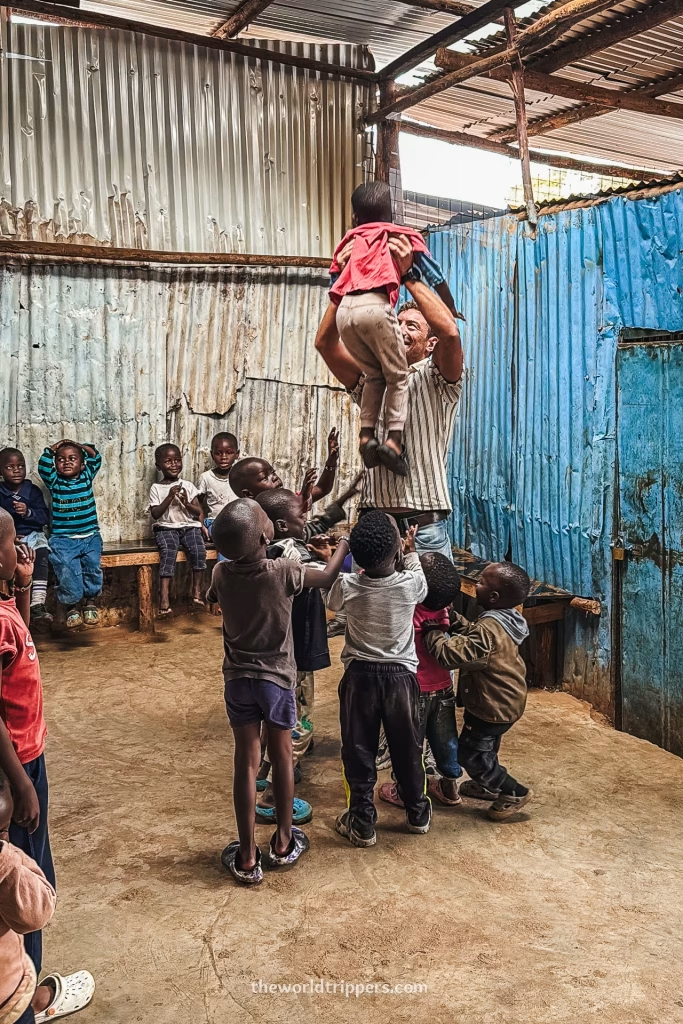
Still, you can’t visit Kibera without a guide. As soon as you walk around here by yourself as a tourist, things can immediately take a different turn. Therefore, always book a guided tour if you want to visit the Kibera slum in Nairobi. We did this tour and found it highly recommended. Passionately they tell about life and most importantly, we never felt unsafe for a moment.
In doing so, part of the proceeds of this tour will go to the foundation that makes life better in the Kibera. Among other things, they invest in projects such as building schools and hospitals in the district. Book the Kibera tour here to see for yourself and contribute to this charity.
2. Walk with former street children through Nairobi center
Another tour in Nairobi where you immediately get an awful lot of information about local life in Nairobi and the harsh reality that comes with it: underprivileged children living on the streets. Together with former street children (these men are now all between 20 and 30) you walk through downtown Nairobi.
They show you important political places, where demonstrations and violent events have taken place. In addition, they also literally take you to the places where they have lived on the streets for years and hear the poignant stories behind them.
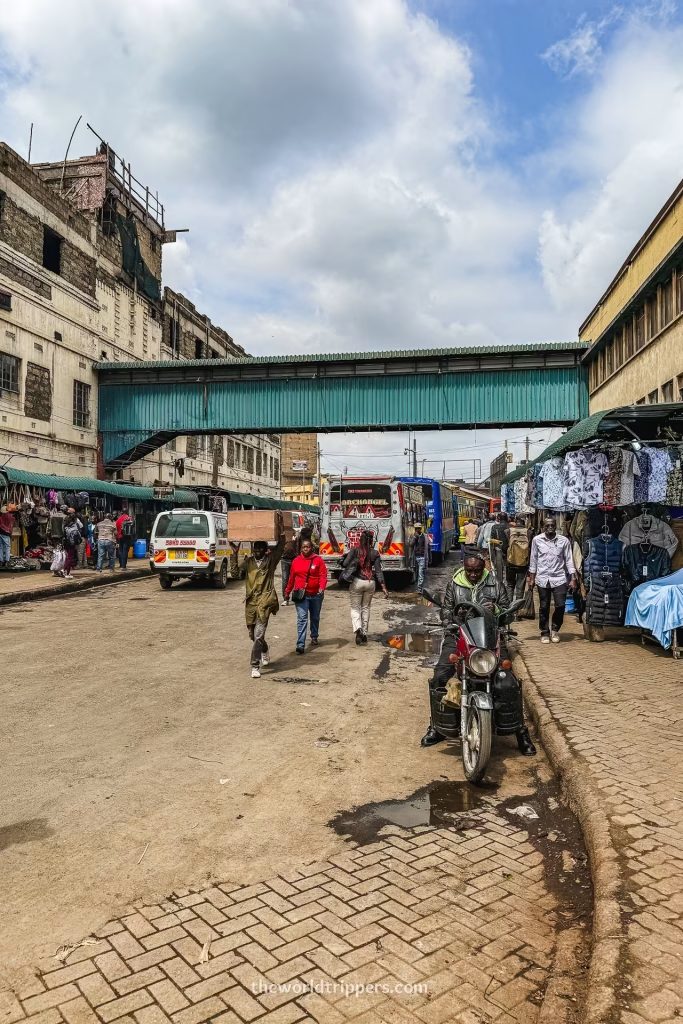
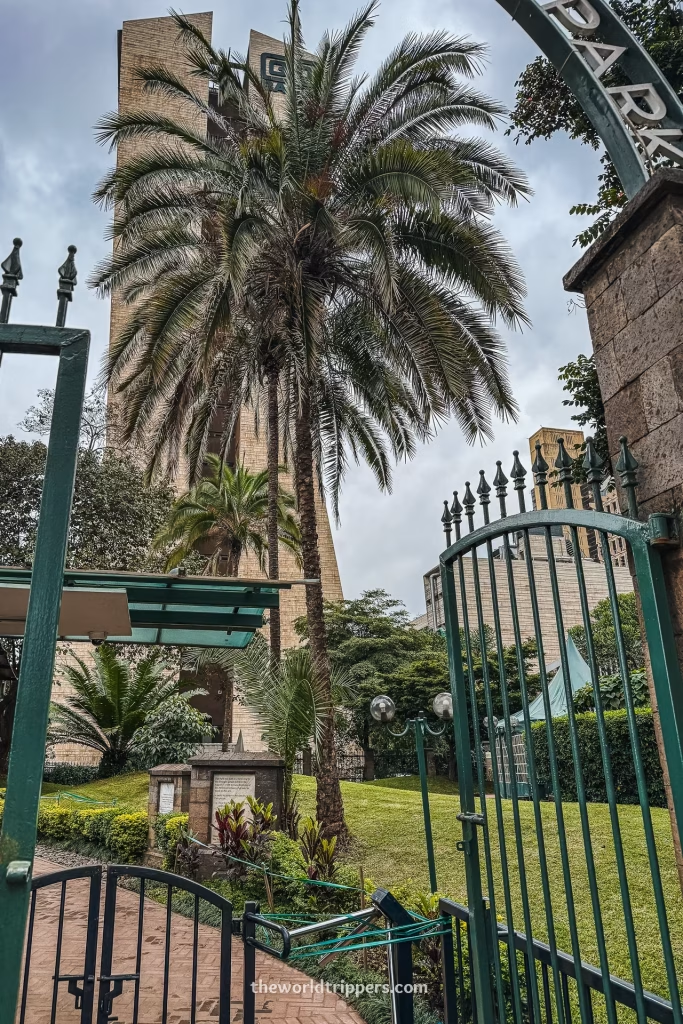
After you have walked for 2 hours, the guides will take you to lunch at a local restaurant. Here you also get the opportunity to buy meals for the street children, something we can only support. The guides had gathered 8 street children, who were all allowed to order some food and drinks at the restaurant and they were extremely happy about this. It feels good to be able to give them something in this way. A hot meal is what they crave the most, they said.
You can book the tour with former street children in Nairobi here. It’s not cheap (around €40 per person) but you know that your money is well spent and that it will go to good ends. Part of the proceeds go to the organization that organizes this tour and does good things for the street children here. We thought that was the most important thing.
3. On safari in Nairobi National Park
You come to Kenya to go on safari, of course, but did you know that you don’t have to leave Nairobi at all to do so? Because in Kenya’s capital you can also simply go on safari in Nairobi National Park. Spot lions, giraffes, zebras and with luck even rhinos while seeing the city skyline in the background. It does have something surreal about it. You can book a day trip for a safari in Nairobi National Park.
If you’re going on a scenic trip through Kenya, and don’t just have a stopover in Nairobi, we would recommend not going on safari in Nairobi National Park, but saving that for, say, Maasai Mara, Amboseli or Tsavo. Peering over the vast savannah in those nature parks feels just a bit more natural and adventurous than with a city in the background. Of course, you can always plan a visit to the park on the last day of your itinerary through Kenya if you haven’t had enough of safaris in Kenya. Book your game drive through Nairobi National Park with pick-up service here.
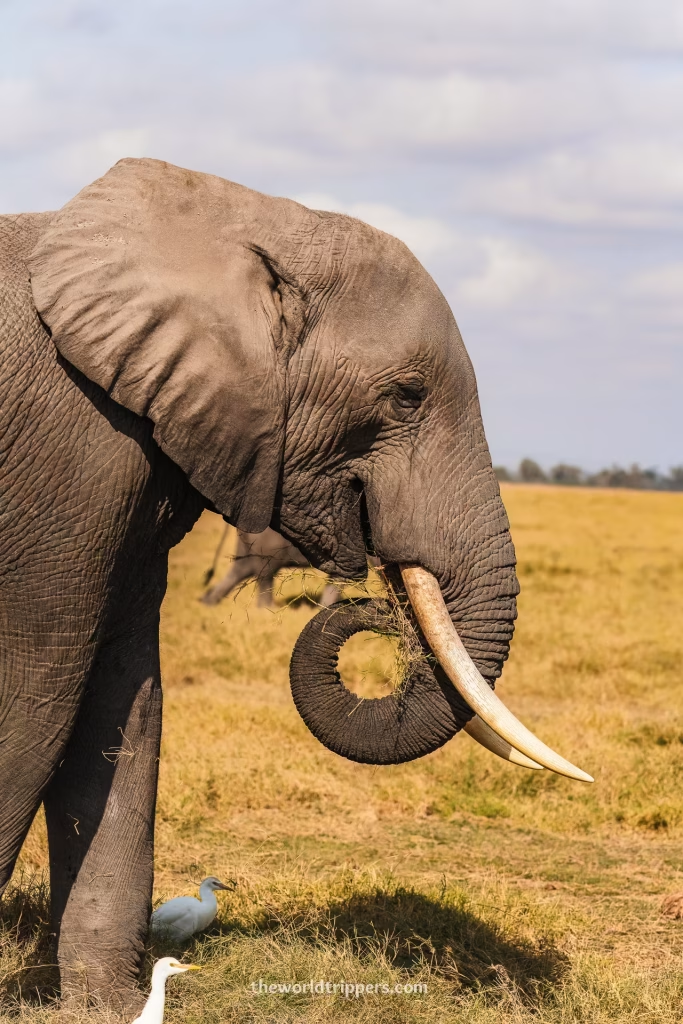
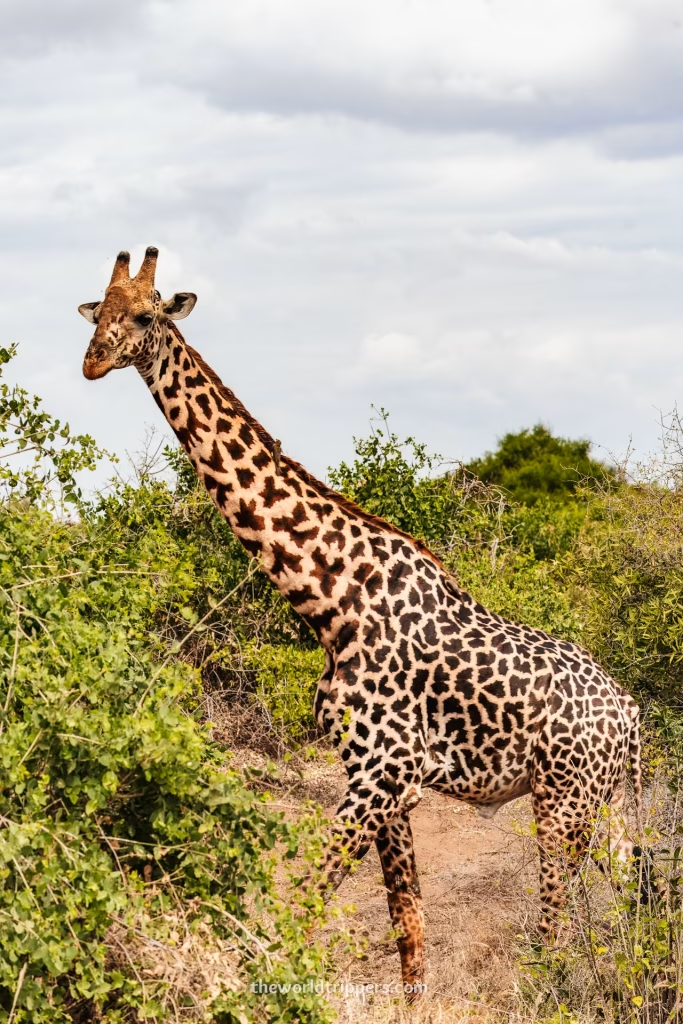
4. Scoring souvenirs at the Maasai market in Nairobi
The Maasai are Kenya’s most famous tribe. They are characterized by their colorful culture, traditional red “clothing” and nomadism between mainly Kenya and Tanzania. They also make the most beautiful souvenirs to take home these days. At the Maasai market in Nairobi, you would want to buy everything.
The market is open 6 days a week, usually from 8 am to 5 pm. Each day the market is in a different location, so you should check carefully which day you would like to visit it.
Locations by day Maasai market Nairobi
Tuesday: Kijabe Street, across from the Norfolk Hotel
Wednesday: Capital Centre on Mombasa Road, near the airport
Thursday: Nakumatt Junction shopping center on Ngong Road
Friday: Village market in Gigiri, on the upper car parking deck
Saturday: the High Court parking deck in downtown Nairobi, behind the Hilton
Sunday: Yaya center in Hurlingham
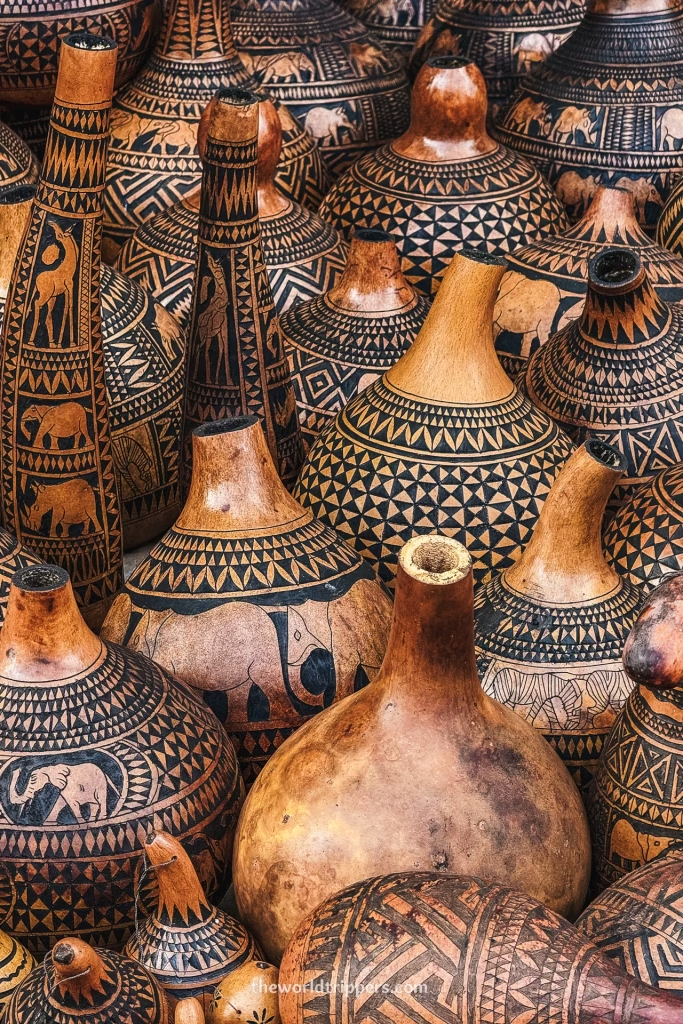
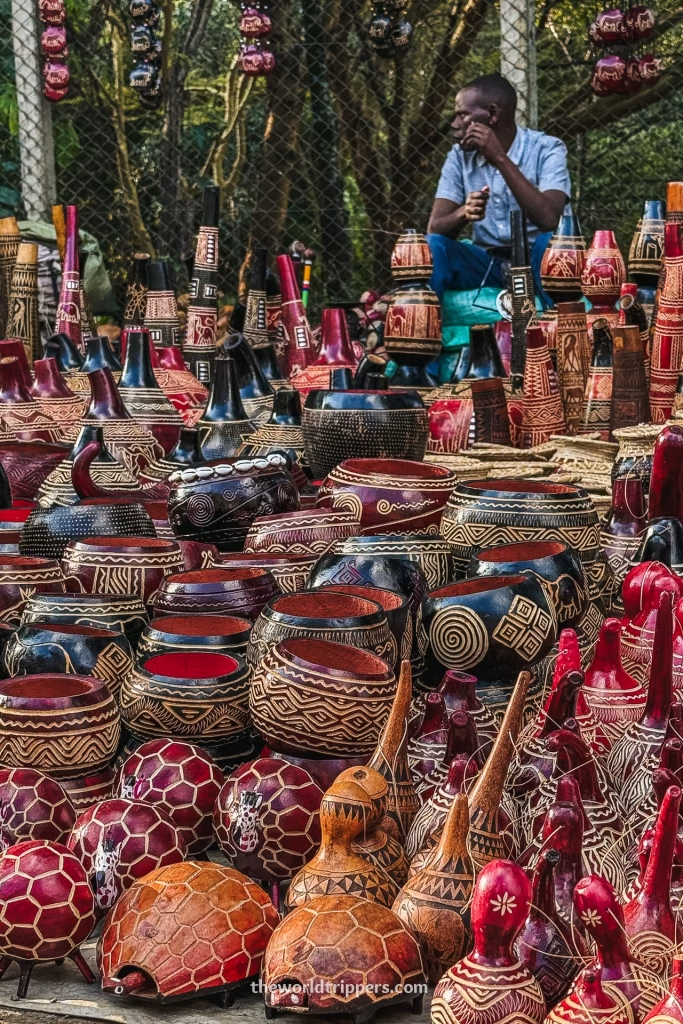
General tips for the Maasai market in Nairobi
If you decide to visit the Maasai market in Nairobi, it is helpful to review these practical tips below:
- The first price is never the final price. Haggling is part of the deal and you can assume that for a souvenir you will have to haggle for at least half of the first price given.
- Never accept a gift. Even if they name it a gift and you don’t have to pay for it, if you don’t buy anything else from them, suddenly it’s not a gift anymore.
- When there are few other tourists at the market, you can be incredibly harassed. Therefore, try to visit the Maasai market precisely when it is busy, usually between 11:00 and 15:00.
We recommend visiting the Maasai market not during your first days in Kenya, but rather on the last day, when you return from your trip through Kenya. This is because in all the places you will visit in Kenya you will already see people selling you souvenirs, including a lot of Maasai. For example, we bought souvenirs in Hell’s Gate National Park, on our visit to the Maasai tribe in the Maasai Mara and on the beach in Diani Beach.
5. Walking through the Hon. John Michuki memorial park
We ourselves went to the Maasai market on Tuesday, near Kijabe Street. We were there around closing time and then got horny. Fortunately, we suddenly saw a little park where we slipped in to unwind for a while. It turned out to be the Hon. John Michuki memorial park in Nairobi.
A great place to take a stroll among the greenery. You don’t have to pay an entrance fee, you just write your name down when you enter and cross it off when you leave the park. A nice place to unwind in the middle of the hustle and bustle of Nairobi.
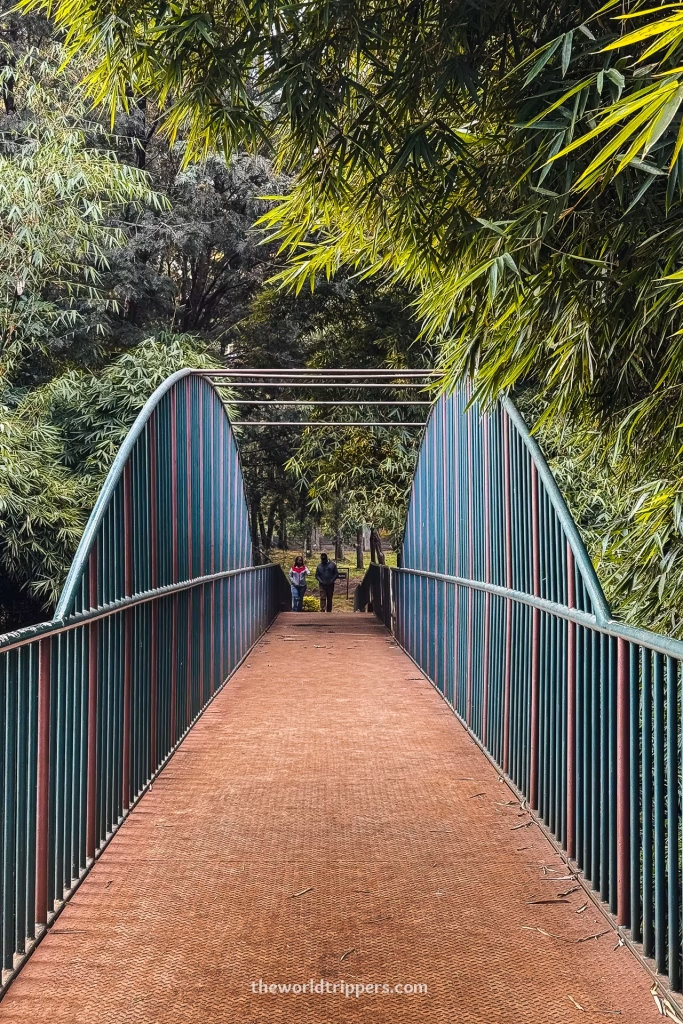
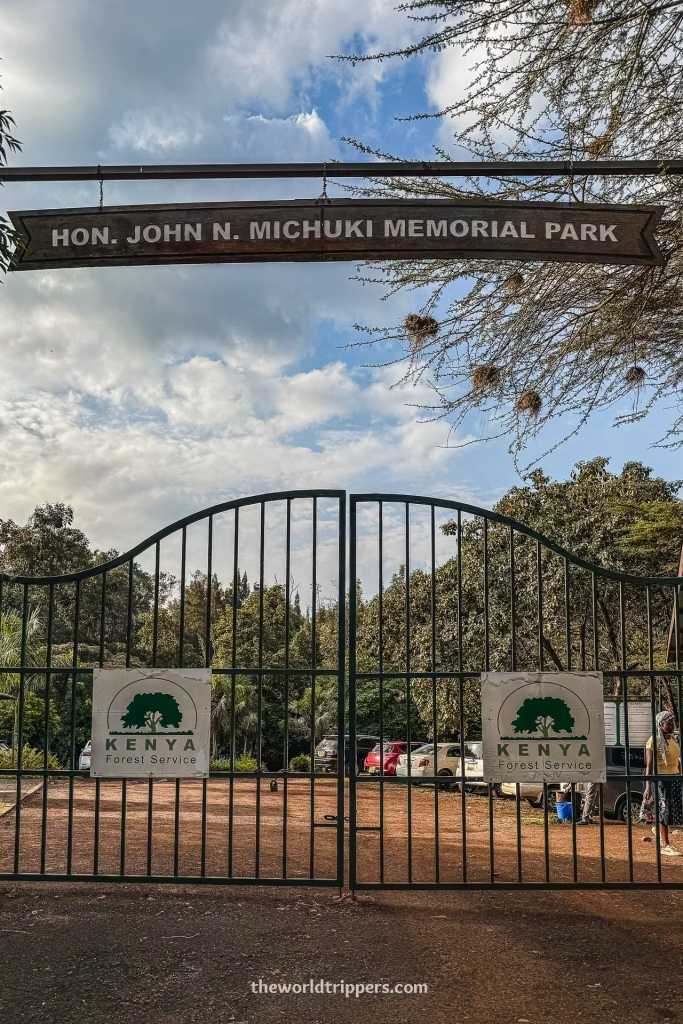
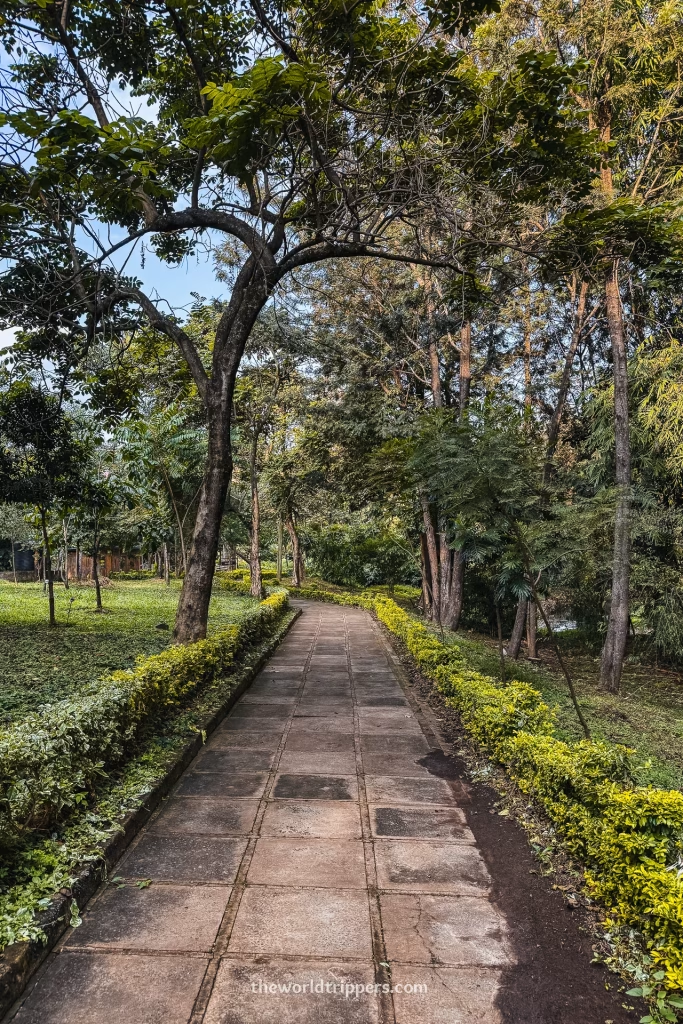
6. Eat at Nairobi’s most extraordinary restaurant: Carnivore
The name says it all: meat lovers will find plenty to enjoy here. Carnivore is the only all you can eat restaurant in Kenya and has a unique concept. Above a huge charcoal oven in the middle of the restaurant, all kinds of meat are roasted. Throughout the evening waiters walk around to provide all the guests with this meat, so you can eat as much as you want.
They used to serve “game meat” like zebra, giraffe and even lion (we’ve heard) at Carnivore, but these days this is no longer allowed. Now they serve pig, cow, chicken, lamb, turkey, crocodile and ostrich. So still a few special meats.
Noelle is vegetarian, so Carnivore is not the best restaurant to go to then, but fortunately they also have a menu for vegetarians, who then pay a little less. Besides, you get delicious salads and some bread throughout the evening, so you definitely won’t go home hungry. It is advisable to book in advance through the website because it is extremely popular and therefore quickly fully booked.
7. Nairobi national museum
For those interested in the history and culture of Kenya, the Nairobi National Museum is highly recommended. It is a well-organized museum with an art and anthropology section. There are also botanical gardens outside, which you may visit with the museum ticket.
8. Learn more about giraffes at the Giraffe Centre in Nairobi
The Nairobi giraffe center cares for Rothschild giraffes, which are critically endangered. It is estimated that there are currently less than 700 Rothschild giraffes left. At the giraffe center, you’ll learn about the giraffes, why they are endangered and what steps are being taken to raise the population.
You can also feed the giraffes here, which we personally are never a big fan of. Nevertheless, the giraffe center in Nairobi does really do a lot of good for the animals, as the population with them has already doubled!
Safe neighborhoods to stay in Nairobi
The safe neighborhoods to stay in Nairobi as a tourist are Westlands, Karen, Kilimani and Lavington. We slept in 3 different places in Nairobi and felt safe everywhere during the day. At night, don’t go walking down the street anyway, no matter what neighborhood you stay in. In that case, always grab an Uber. The 3 accommodations below are our favorites in Nairobi and are in safe neighborhoods.
